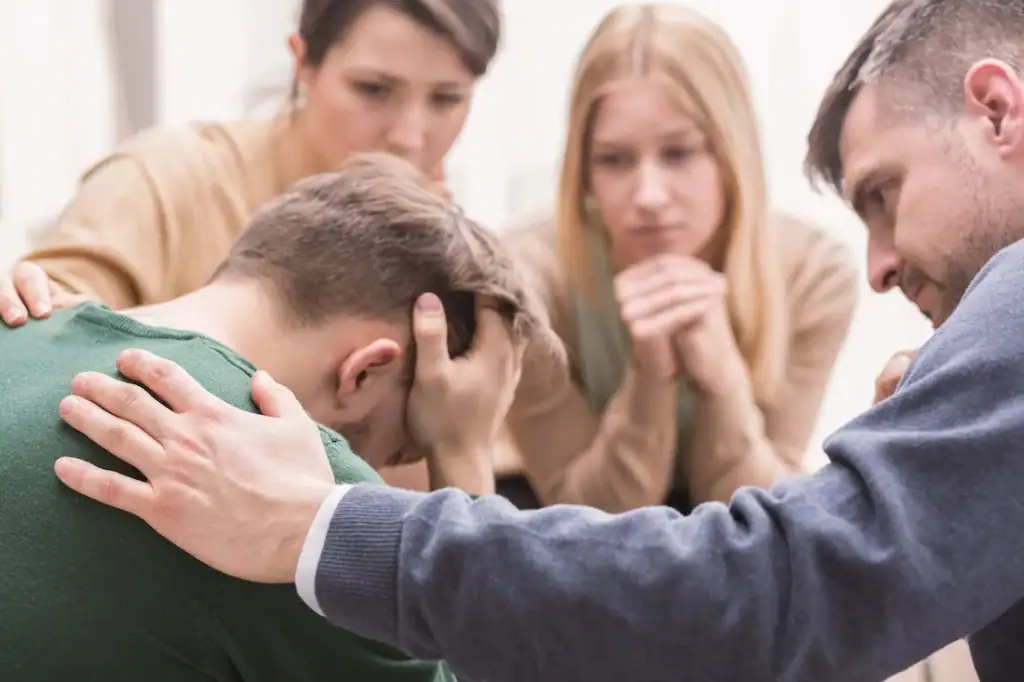Practical steps, emotional support, and hope for the journey ahead
When your child is struggling with addiction, the world changes. Fear, guilt, confusion, exhaustion, and heartbreak can become daily companions. As a parent, it’s natural to want to fix things—but addiction is complex, and there are no one-size-fits-all answers. What you can do is build understanding, connection, and resilience—for them and for yourself.
At CARES, we believe that parents of addicted loved ones need as much care, education, and community as those in recovery. Below is a guide to help you navigate this difficult journey with more clarity, support, and purpose.
Understanding Addiction: Foundational Concepts
Before diving into actions, solidify your understanding of addiction:
- It’s a disease, not a moral failing. Addiction rewires the brain’s reward, motivation, and impulse systems. Judgmental thinking often adds more pain than help.
- It’s often cyclical. Relapses and progress are part of many recovery journeys. Relapse doesn’t always mean failure — but it does mean reassessment and adaptation.
- Co-occurring issues are common. Mental health conditions (depression, anxiety, trauma) often accompany addiction, and vice versa.
- Power of environment, triggers & stress. Stressors, social circles, trauma, and environment have a big influence over coping patterns or relapse risk.
Holding these truths in mind helps you respond with compassion and clearer judgment, rather than fear or reaction.
What You Can Do: A Parent’s Action Plan
Care for yourself first
You can’t pour from an empty cup. Prioritize your emotional, physical, and mental health. Therapy, peer support, exercise, sufficient sleep, and healthy social connections are not optional.
Educate yourself
Read books, attend seminars/webinars, follow trusted organizations, and learn about addiction, recovery, and family dynamics. The more informed you are, the better you can make decisions and set boundaries.
Set healthy boundaries and limits
Boundaries protect you and prevent enabling. They might include:
- Not giving money that could fuel substance use
- Insisting on certain behaviors (e.g. attending treatment) if you provide support
- Limiting contact or setting “pause” rules in times of crisis
- Be clear, consistent, and kind.
Open communication
- Use “I” statements (e.g. “I feel worried when…”).
- Avoid shame, blame, or ultimatums you can’t follow through on.
- Listen more than you talk. Sometimes your presence is more powerful than your words.
- Be honest about what you’ll accept and what you won’t.
Encourage help, but don’t force it
- Suggest therapy, rehabilitation centers, support groups, or medical evaluation.
- Offer help with logistics such as finding resources, driving, or scheduling — if doing so won’t put you at personal risk.
- Be willing to step back if they reject help; your persistence must balance with self-care.
Know when to intervene, and when to step away
- In crisis (overdose, self-harm, harm to others), contact emergency or medical professionals immediately.
- Sometimes “letting go” or creating space emotionally or physically is necessary to protect your wellbeing and let consequences speak.

Connect with other parents and families
Nobody should walk this path alone. Peer support, caregiver groups, and networks like CARES help you feel seen, heard, less isolated, and better equipped.
Manage your expectations
Recovery is rarely linear. Celebrate small victories. Expect setbacks. Be gentle with yourself and your child.
Plan long-term
- Think about what your relationship looks like now vs. in recovery.
- Look for stable support structures (therapy, long-term groups, alternative housing, vocational help).
- Keep reviewing and adjusting boundaries, roles, and communications as your loved one (and you) evolve.
Emotional & Psychological Support: What You’ll Need
- Therapy & counseling (individual, couples, or family)
- Support groups for parents and caregivers
- Peer mentorship or “parent partners”
- Grief work & acceptance practices
- Mindfulness, stress management, or spiritual care
- Journaling or expressive outlets
These tools help with the guilt, shame, fear, and grief that are natural. They also help you stay grounded and emotionally regulated when situations become volatile.
How CARES Supports You
At CARES, our mission is to help families and caregivers regain footing, hope, and clarity. Here’s how we aim to assist:
- Weekly discussion events with expert speakers and peer sharing (education + connection)
- Resource hub with articles, toolkits, book suggestions, referral directories
- Community network of parents, caregivers, relatives, and allies
- Safe, judgment-free environment for sharing, asking hard questions, being vulnerable
If this is your first time searching for support, we invite you to attend one of our meetings. Even one conversation can shift something in your heart.
CARES Can Help
Being a parent of someone struggling with addiction is one of the hardest roles life gives. You will experience hope, despair, confusion, love, and frustration — often all in one week. Yet through it, there is possibility: of healing, reconnection, and transformation for both you and your child.
You don’t have to walk this path alone. Reach out, build your support systems, lean into the education and tools available, and be courageous in setting boundaries — all while holding space for love. CARES is here to walk with you.
